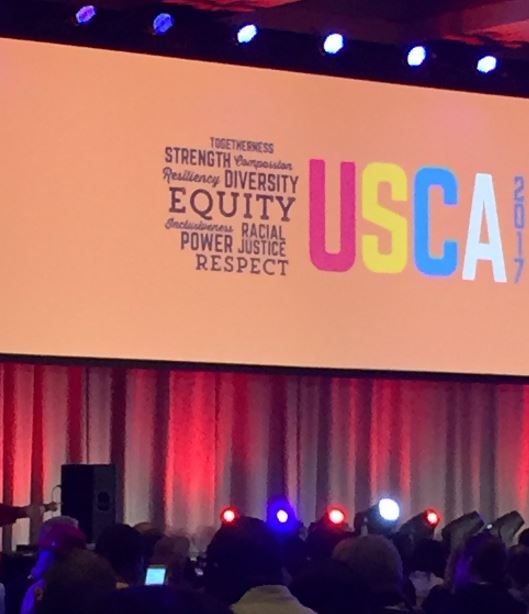USCA Takeaways: The Importance of Treatment and PrEP for MSMs of Color
Were you unable to make it to the United States Conference on AIDS (USCA) in DC this year? Check out our takeaways from this 2017 USCA session, entitled “Together: Innovative Partnerships to Support Treatment and PrEP Use Among MSMs of Color.” On the panel were providers and representatives of organizations including the Kaiser Family Foundation, which helped to launch the “Greater Than AIDS” campaign, NASTAD, and the Center for Engaging Black MSM Across the Care Continuum; as well as several MSM of color who shared their experiences: Calvin, a professional actor who is open about his HIV status; Joshua, who spoke of being stigmatized by his family; and Nico, who is an active PrEP user.
Calvin talked about being stigmatized in his profession as an actor but pushing past it. He has continued to put himself out there for roles and, through his perseverance, has been successful.
Joshua spoke of coming out as gay and being ostracized and exiled at a young age by his parents, who were deeply rooted in conservative religious values. He often engaged in sex in exchange for food and shelter. When he was diagnosed with HIV at the age of 23 years old, his mother came back into his life. Due to her fear of HIV, Joshua had to sleep on the floor of her home, and everything he used was immediately bleached. But, little by little, his mother came around, and she is now a vocal advocate, accompanying him to speak out publicly about his story. Joshua said he made his HIV+ status public in his hometown church despite the stigma because “it helped to remove their power over me.”
Joshua’s father, the church pastor, blamed and condemned Joshua when, at a young age, he was molested by a church member. Joshua said he thought this was what God was all about, but he later developed a personal relationship with God. He wants to let people know that “I’m same-gender-loving, and God still loves me.” Joshua made another compelling point: “when you don’t feel that you can take your partner home to be accepted by your family, you feel like you can’t build a relationship,” which can lead to having more sex partners.
Dr. Leo Moore of the LA County Department of Health spoke about implicit provider bias that young MSM experience because of assumptions about their lifestyle, particularly around PrEP use. He stressed that providers should share information but let patients make decisions for themselves, without judgment. He also discussed misconceptions around PrEP use among young MSM and cited a study showing that awareness is not necessarily the problem: the majority of young MSM are aware of PrEP, according to the study, but uptake is low. Dr. Moore stressed the need to:
• hire more gay men of color as health care providers:
• incorporate feedback from young MSM into their care, and
• send staff into the field to meet them where they are
Concerns about the cost of PrEP are very often a factor in low uptake, so it’s important to spread the word that PrEP is available at low or no cost from a number of sources.
Nico talked about knowing the risks and benefits of PrEP and then making the decision for yourself. He said taking PrEP has helped him to feel safe. When asked, “Why take a medicine every day if you’re not sick?” he says, “This is a way to protect yourself.”
Other ways to outreach young MSM? Dr. Moore said dating apps are the best place, because they are already self-identified. The website Well Versed has resources that connect MSM of color to care in a culturally responsive way, including a provider directory that is compiled through user contributions and ratings.

